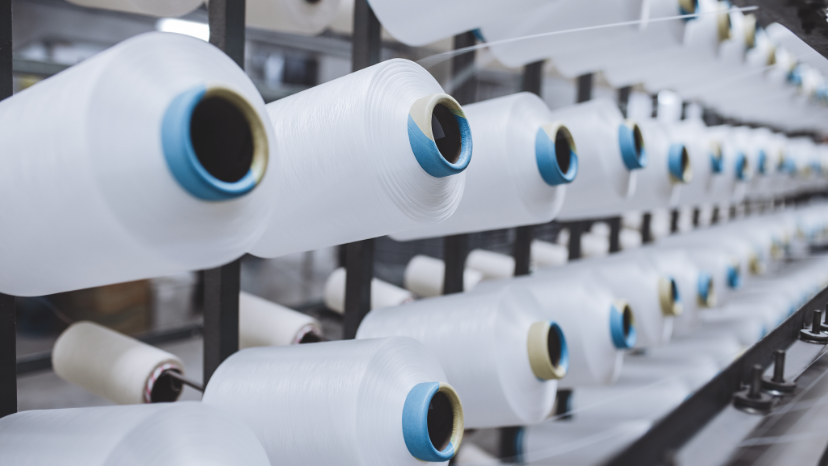Your partner in Ells Exemption and Climate Change Agreements
Helping you smooth the path to EIIs Exemption and CCA certification, saving you money, optimising energy efficiency, and laying the groundwork for your carbon reduction journey.
Government initiatives for energy-intense industries
The Energy Intensive Industries scheme and the Climate Change Agreement scheme are UK government initiatives that can deliver huge savings for eligible businesses. So how do you know if your organisation qualifies? And what do the application processes involve?
When you partner with Trident, you’ll benefit from our years of experience in helping businesses streamline the path to scheme compliance, saving you valuable time and effort, and ensuring you reap the benefits as quickly as possible.
Expert spport to steamline your scheme compliance journey

What is the Energy Intensive Industries (EIIs) Exemption scheme?
This initiative was introduced in 2017 to help high energy users in the UK compete with the lower energy costs of some of their counterparts worldwide.
Qualifying businesses are eligible for relief and compensation on part of the non-commodity element of their electricity spend.
EIIs are defined by industry sector and electricity intensity. They tend to focus on sectors such as engineering, steel, chemicals, meat processing and the brick-making industry, where energy usage makes up a significant part of production costs.
What's in it for my business?
EIIs are currently exempt from 100%* of the costs of Contracts for Difference (CfD), Renewable Obligation (RO), Small-Scale Feed in tariff (FiT) and Capacity Market (CM). The cost of the exemption is paid for through an increase in costs for non-EII businesses.
Additionally EIIs are eligible for up to 60% compensation of the costs associated with Distribution Use of System Charge (DUoS), Transmission Use of System Charges (TNUoS) and Balancing Use of System Charges (BSUoS). This is paid back as an annual payment in May each year. The cost of the compensation is paid for through a new non-commodity charge introduced in April 2025, which is applied to all non-domestic and domestic consumers.
Is my business eligible for EIIs Exemption?
To qualify, your business must:
- Manufacture a product in the UK within an eligible sector, defined by a 4-digit NACE Code. The NACE Code will typically be a business registered at Companies House – the “sector level test”.
- Not be an Undertaking in Difficulty (UID) — UID guidelines state that “an undertaking is considered to be in difficulty when, without intervention by the State, it will almost certainly be condemned to going out of business in the short or medium term”.
- Provide evidence of the proportion of electricity used to manufacture the product for a period of at least three months.
- Pass a 20% electricity intensity test — the “business level test”.
- Be able to provide at least two quarters of financial data.
Read the government’s full guidance note here, for more information about the eligibility criteria.
What is a Climate Change Agreement (CCA)?
This scheme is designed to help energy-intensive businesses reduce their energy use and carbon dioxide (CO₂) emissions while benefiting from reduced costs under the Climate Change Levy (CCL).
A recent government consultation confirmed that the scheme will now be extended until 2033, with a new eligibility process and a wider range of qualifying sectors. New businesses in existing eligible sectors can apply from May 2025, while newly eligible sectors can join in 2027.
What are the benefits?
Energy efficiency: Improvements made to meet the targets can result in considerable savings on your energy bills.
Reduced carbon footprint: A CCA is a proactive stride forward towards an energy-efficient, low-carbon future.
Meeting net-zero objectives: Take measurable steps to tackle climate change and meet your net-zero targets.
CCL savings: Benefit from a significant discount on your Climate Change Levy payments. Current savings are up to 92% on electricity, 83% on gas and 77% on LPG.
Our five-step approach to CCA success
1 Advise
We advise on any corrective action to be taken before you apply, and manage progress to ensure compliance.
2 Assess
We assess your eligibility for the scheme and calculate the likely CCL cost savings.
3 Apply
We complete and submit the application on your behalf.
4 Review
We liaise with the relevant agencies and address any issues.
5 Report
We publish a periodic report detailing your performance against agreed CCA targets.
Securing a rebate of c. £1,400,000 for John Cotton
{{quote}}

See how we’ve been managing John Cotton’s Climate Change Agreement for the past seven years, helping it cut costs and achieve its energy targets ever since.
See success storyOther compliance services
Streamlined Energy and Carbon Reporting (SECR)
Energy Savings Opportunity Scheme (ESOS)
Chat with one of our net-zero energy experts
Let’s discuss how you can optimise your energy spend, cut costs, get future-ready and achieve your sustainability objectives, with our support. Fill in the query form and we’ll be right on it.
Please choose a service from the list above.